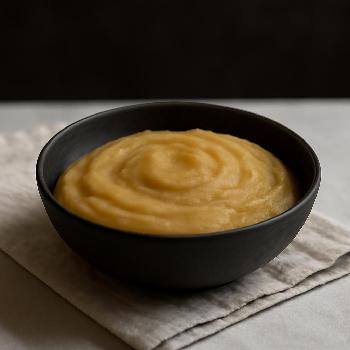Cooking Tips > Ingredients & Substitutes > Common Ingredients > What’s a good substitute for butter?
What’s a good substitute for butter?
Butter is a staple in many recipes, providing richness, flavor, and texture. However, if you're out of butter, have dietary restrictions, or are simply looking for healthier alternatives, there are several excellent substitutes you can use. This tutorial explores the best butter substitutes for various cooking and baking purposes.

Understanding the Role of Butter
Before diving into substitutes, it's important to understand what butter contributes to a recipe. Butter provides:
The best substitute will depend on which of these qualities you need to replicate.
Applesauce
Applesauce is a fantastic substitute for butter in baking, especially for cakes, muffins, and quick breads. It adds moisture and sweetness, resulting in a soft texture.
Mashed Avocado
Mashed avocado is a great substitute for butter in brownies, cakes, and cookies. It adds moisture and healthy fats, contributing to a soft and chewy texture.
Coconut Oil
Coconut oil can be a good substitute for butter, especially in vegan recipes. It provides moisture and richness, and can impart a subtle coconut flavor.
Olive Oil
Olive oil can be used as a butter substitute in savory dishes and some baked goods. It adds moisture and a distinct flavor.
Greek Yogurt
Greek yogurt can be used to replace some of the butter in baked goods, adding moisture and reducing the fat content.
Other Oil (Vegetable, Canola, Sunflower)
Neutral-flavored oils like vegetable, canola, or sunflower oil can be used as direct substitutes for melted butter, especially in cakes and muffins. They provide moisture without adding a strong flavor.
Margarine or Butter Alternatives
Vegan butter alternatives like margarine and plant-based butter sticks can also be used as butter substitutes. These alternatives are often formulated to mimic the taste and texture of butter, making them a good choice for baking and cooking.
FAQ
-
Can I use any type of applesauce?
It's best to use unsweetened applesauce to control the sweetness of your recipe. If you only have sweetened applesauce, reduce the amount of sugar in the recipe accordingly. -
Will avocado make my baked goods taste like avocado?
Mashed avocado can impart a subtle flavor, so it's best suited for recipes where that flavor won't be overpowering, like chocolate-based desserts. -
Can I use butter substitutes in all recipes?
Not all butter substitutes work well in all recipes. Consider the role of butter in the recipe and choose a substitute that mimics those qualities. For example, in recipes where butter's flavor is essential, like shortbread cookies, it's best to use a margarine or butter alternative. -
Is coconut oil healthy?
Coconut oil is high in saturated fat. While some studies suggest potential health benefits, it's best to use it in moderation as part of a balanced diet.
